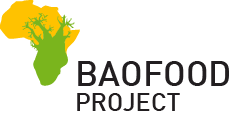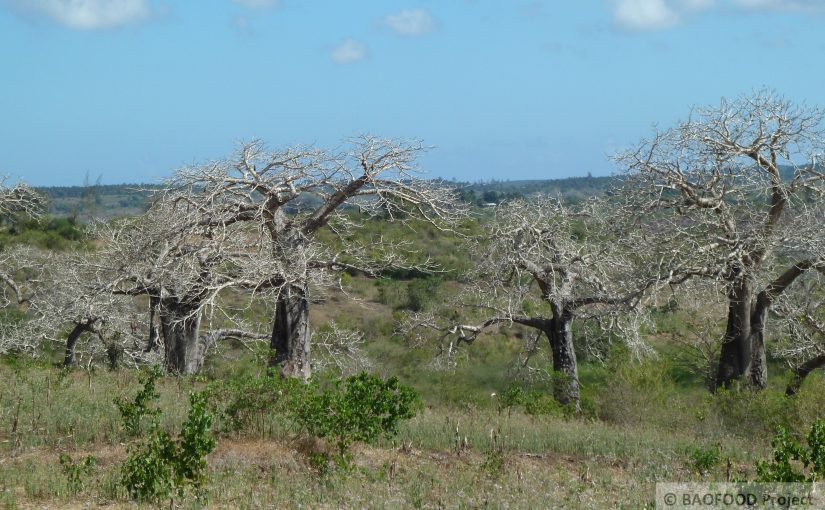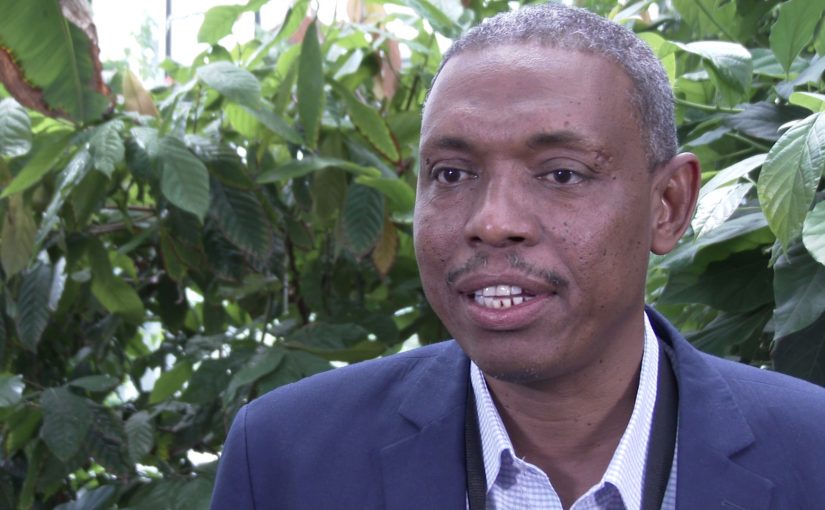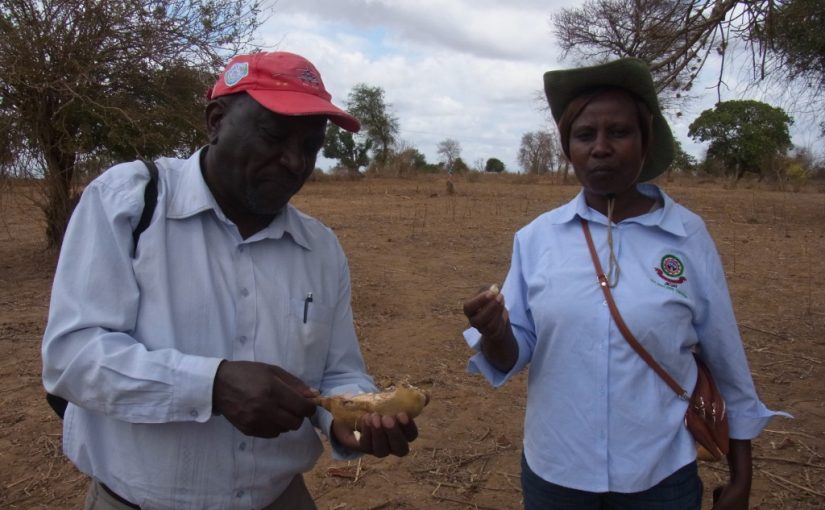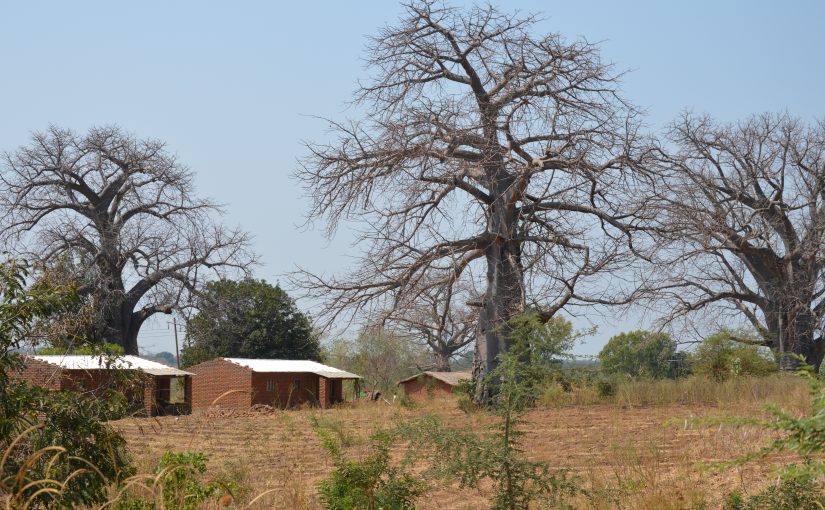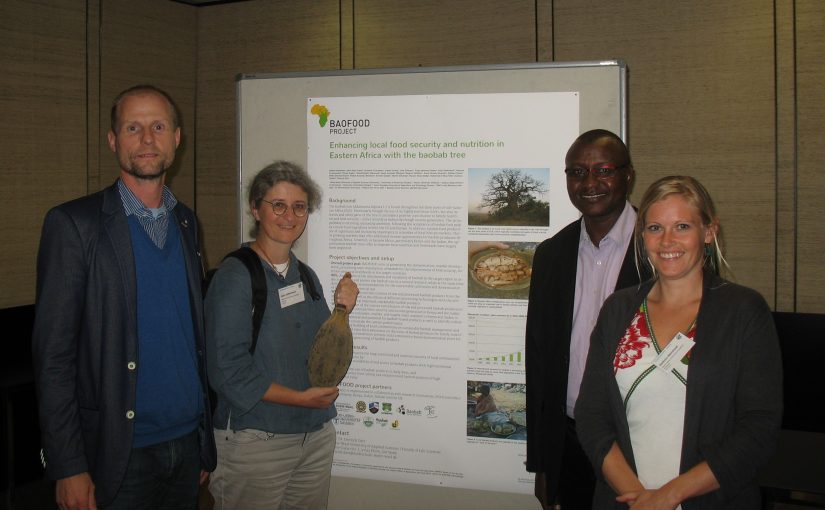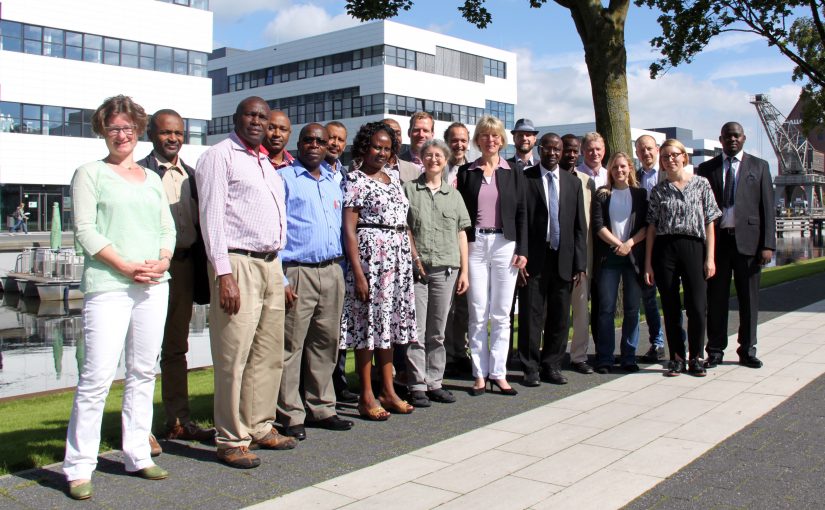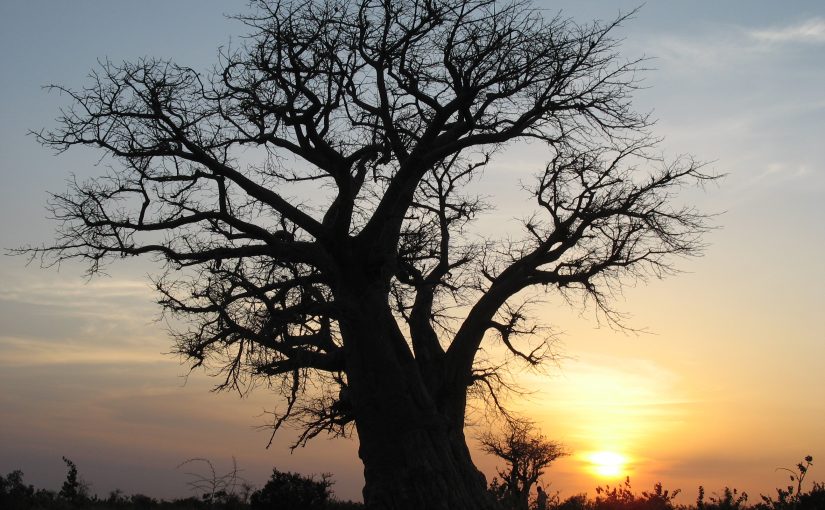Coordinated by WP4, a joint exploratory field trip was carried out by WP 2, WP 3 and WP 4 from the 17th to the 21st of October 2016 to the case study sites of Kitui, Kibwezi, Kilifi, and Kwale, Kenya. Information was collected on issues such as the collection, processing and trade of baobab products, food habits of the population (with special regard to the consumption of baobab products), as well as the growth patterns of baobab trees. Continue reading Joint exploratory field trip to Kenya (WP2-4)
Category: News
Interview: Tarig Elksheikh Mahmoud on BAOFOOD project in Sudan
Start of WP1 field activities in Kenya
First scoping visits to Kilifi as well as Kitui county in Kenya marked the beginning of the field activities for work package 1 (sustainable use of baobab resources, domestication). These visits demonstrated that the fruiting season at the coast is currently taking place and, therefore, research activities to map the trees and assess their morphological intra-specific diversity are currently being planned in detail. Unfortunately in the Kitui area no fruits could be observed at this stage so the sampling activities have been postponed to April 2017. Continue reading Start of WP1 field activities in Kenya
Notes from the field: visit to Malawi September 2016
Members from the Rhine-Waal University of Applied Science visited Malawi to kick-off the cooperation with local project partner Mzuzu University. Two Master students have just joined here and will conduct their thesis research within the project framework, focusing on the advanced baobab processing sector in Malawi. Continue reading Notes from the field: visit to Malawi September 2016
BAOFOOD @ Tropentag 2016
Three BAOFOOD project partners were present at the Tropentag conference 2016, which took place in Vienna from the 18th to the 21st of September: the Rhine-Waal University of Applied Sciences, University of Khartoum, as well as the University of Gießen. The BAOFOOD project was presented for the first time in public, illustrating background of the baobab tree and its connection to food security as well as upcoming project activities. You can download and read the abstract here.
BAOFOOD kick-off workshop at Rhine-Waal University of Applied Science
Ensuring a sustainable food supply through the African baobab tree
The research project BAOFOOD is dedicated to improving the food supply and situation in rural east Africa through the remarkable baobab tree. The project kicked off with an initial workshop in June 2016, which brought researchers and project partners from renowned international institutions to Kleve. Continue reading BAOFOOD kick-off workshop at Rhine-Waal University of Applied Science
Green light for BAOFOOD
Ensuring a sustainable food supply in Eastern Africa with the baobab tree
BAOFOOD, an international research project led by Rhine-Waal University of Applied Sciences and conducted in collaboration with research institutions, NGOs and industry in Germany, Kenya, Sudan, Malawi and the UK, is off to a successful start. The project, which is funded by the German Federal Ministry of Food and Agriculture (BMEL), is dedicated to improving and ensuring the food supply in Eastern Africa through the unique baobab tree. Continue reading Green light for BAOFOOD
